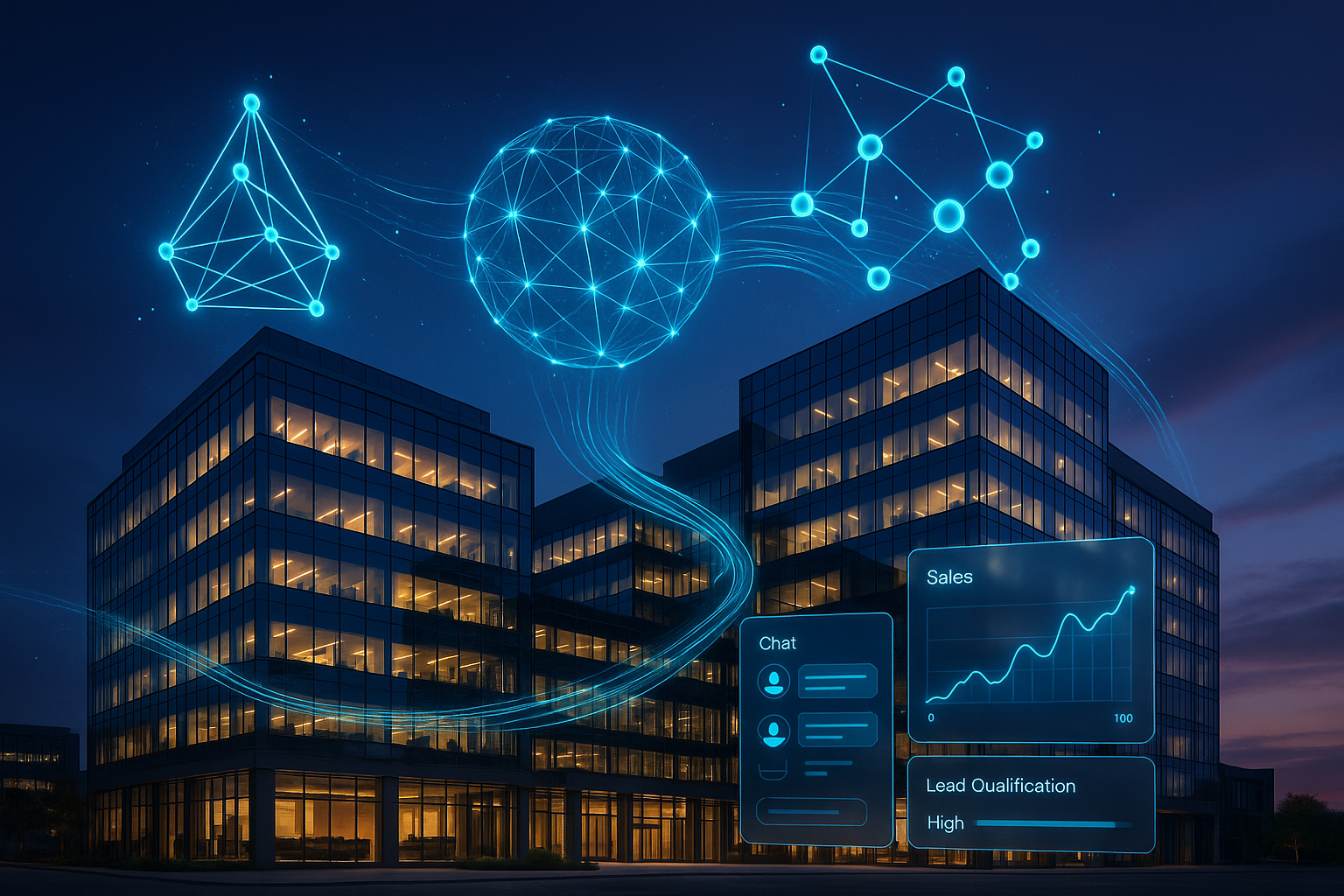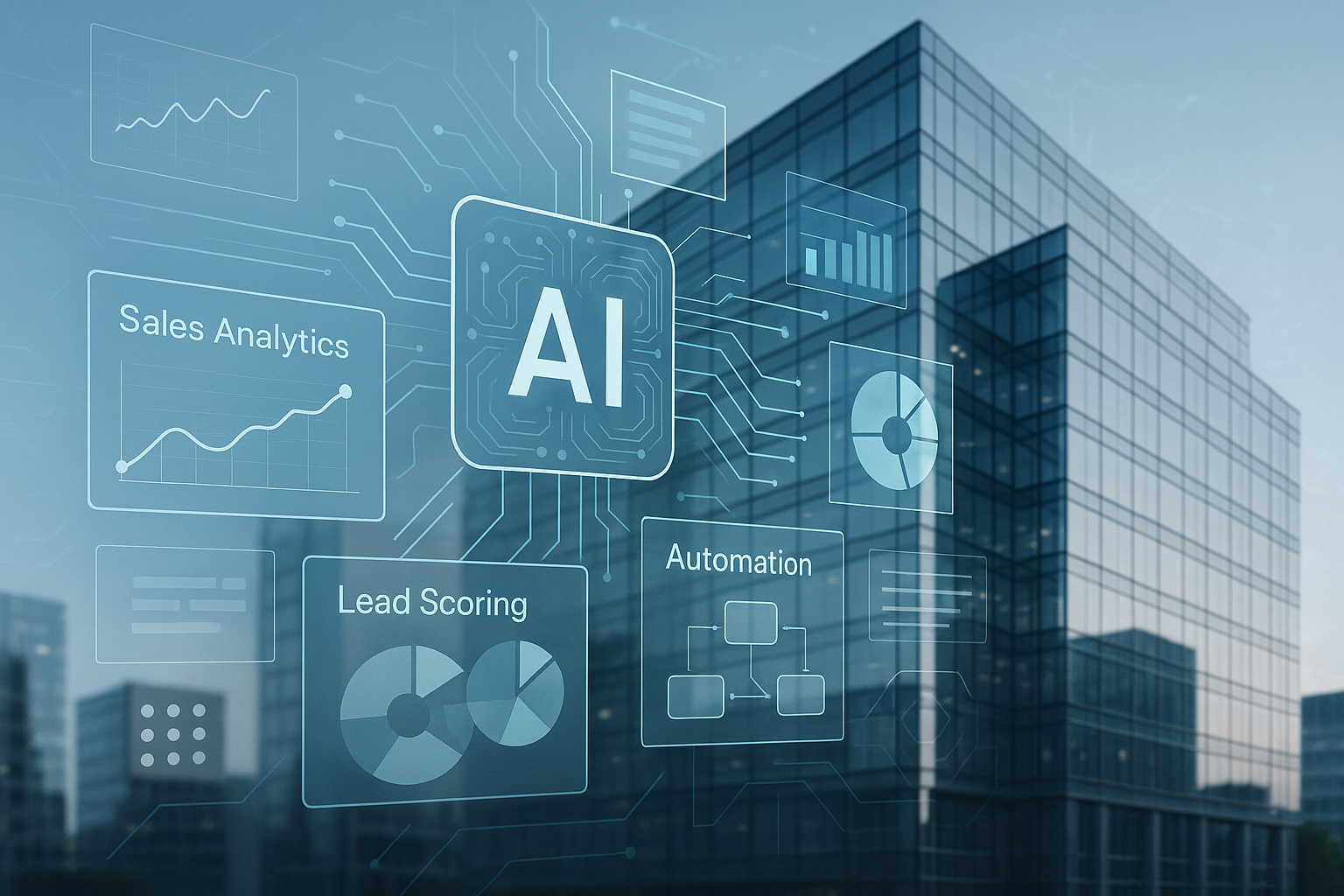
How AI Agents and Automated Workflows Are Transforming Commercial Real Estate Appraisals in 2025
Caiyman.ai Research Team
AI Solutions Architect
2025 marks a turning point: AI agents and automated workflows are fundamentally transforming how commercial real estate (CRE) appraisals are performed. As data complexity and regulatory demands surge, traditional appraisal methods can no longer keep pace. In response, the industry is rapidly embracing AI-driven multi-agent systems (MAS) and advanced workflow automation, unlocking new levels of efficiency, accuracy, transparency, and strategic value (AI in Institutional CRE Analysis).
Why 2025 Is the Tipping Point for AI Agents in CRE Appraisals
Propelled by market volatility, ever-expanding data sources, and stricter compliance requirements, institutional CRE stakeholders face a stark reality: analog appraisals aren’t tenable at scale. AI agent technology, workflow orchestration, and automation are rapidly resolving legacy pain points—from manual data wrangling to error-prone valuations and compliance bottlenecks. In 2025, the mainstream adoption of these technologies is driving measurable ROI, regulatory alignment, and competitive differentiation (A.CRE 2025 Edition).
Inside the Tech: Core Architecture and Capabilities Driving AI Appraisal Agents
Automated Valuation Models: From Regression to Ensemble ML
Legacy hedonic models are giving way to powerful ensemble machine learning techniques such as LightGBM and SHAP-based explainability (AI in Real Estate Research). These automated valuation models (AVMs) integrate diverse data—property features, sales comps, market trends, imagery—yielding error rates as low as 2-4%, outperforming traditional approaches (5-6%). Multi-modal AVMs can incorporate both property images and lease data, delivering robust, scalable valuation suited for institutional portfolios.
AI-Driven Document and Data Processing
Natural language processing (NLP) agents now automate lease abstraction, rent roll analysis, and legal compliance review (Appwrk 2025 Trends; PBMares on AI in Appraisal). Computer vision agents assess property images for condition and defect detection, while IoT device integration provides real-time operational metrics. The result: faster, more complete due diligence and higher quality risk assessments (LeewayHertz AI Agents).
Orchestrating the Workflow: Multi-Agent Systems
MAS break down complex CRE appraisal processes into specialized, collaborating agents (valuation, due diligence, compliance, negotiation, etc.). Workflow orchestration tools using directed acyclic graphs (DAGs) or APIs manage dependencies, automate handoffs, and enable robust error handling (AI in Institutional CRE Analysis). Crucially, human-in-the-loop mechanisms ensure expert oversight for critical decisions, preserving trust and regulatory compliance (Valcre on AI-human Collaboration).
Workflow Redesign: Real-World AI Agent Adoption and Case Studies
AI in Data Acquisition and Integration
Modern AI agents aggregate data from MLS, public records, IoT sensors, satellite/drone imagery, and market news. According to recent research, this multi-source ingestion dramatically improves accuracy and reliability, as fragmented data has long been a barrier to sound CRE valuations (Appwrk).
Automated Valuation and Portfolio Analysis
Hybrid ML-NLP-CV models now automate valuation at property and portfolio scale. For example, institutional adopters like JLL report valuation accuracy improvements up to 95% while reducing cycle times by 20-30% (Institutional CRE Analysis).
Document Processing and Due Diligence Automation
AI-powered systems extract, abstract, and audit information from voluminous lease and compliance documents. MAS enable rapid document review, automated underwriting, and compliance checks with persistent human review checkpoints, reducing risk without sacrificing speed (LeewayHertz AI Agents). Rigorous audit trails and explainability features support legal and client transparency.
Best Practices and Challenges: Getting AI Workflow Integration Right
Technical Integration and Architecture Best Practices
Integration with legacy CRE platforms depends on robust APIs, middleware, and semantic frameworks (like RealEstateCore ontologies) to bridge data silos (BPM: AI in CRE). Modular MAS frameworks, containerization (Docker, Kubernetes), and message queues enhance scalability and uptime.
Explainability, Bias Detection, and Regulatory Oversight
CRE AI must comply with GDPR, CCPA, Fair Housing, and the evolving EU AI Act. Embedding explainability (XAI), intent logging, and audit trails enables human oversight and regulatory auditability (AI in Real Estate Research). Regular fairness audits and bias mitigation routines are essential to prevent and detect discriminatory patterns in valuation and lending decisions.
Continuous monitoring—including user feedback loops, observability frameworks (Prometheus, Grafana), and robust testing regimens—ensures operational resilience, addresses model drift, and preserves trust over time.
What’s Next: Emerging Trends and Strategic Implications for CRE Leaders
Looking forward, Generative AI and domain-specific LLMs (like "Real-GPT") are set to automate custom valuation reports, market analyses, and lease summarizations (A.CRE). AI is also advancing ESG-focused analytics, climate risk modeling, and integrating with IoT and blockchain to enable predictive maintenance and asset tokenization (Institutional CRE Analysis).
The rising importance of agentic orchestration—where modular AI agents coordinate autonomously—signals a future of dynamic, self-optimizing CRE portfolios and end-to-end automated deal cycles. Institutions that prioritize transparent, ethical, and scalable AI workflow architectures will future-proof investments and operations in an increasingly data-driven marketplace.
CRE Appraisal in 2025: Why AI-Driven Workflows Are Now Mission Critical
AI agent workflows have become essential—not optional—for accuracy, efficiency, and regulatory compliance in CRE appraisal. The synergy between human expertise and AI speed ensures better decision-making, resilience in volatile markets, and defensible, bias-mitigated results. Organizations that lag in adoption now risk operational obsolescence and regulatory exposure.
Ready to Transform Your Appraisal Workflow? Caiyman.ai Can Help
If your organization is ready to champion next-generation CRE appraisal, Caiyman.ai offers academic-grade expertise in AI architecture, workflow automation, compliance, and bespoke integration for institutional real estate. Contact us to schedule a tailored strategic assessment or pilot project—and discover how to turn AI automation into your competitive advantage.
Sources
- AI in Institutional CRE Analysis (Google Doc, 2024)
- AI in Real Estate Research (Google Doc, 2024)
- AI in Real Estate: 2025 Trends (Appwrk)
- AI in Commercial Real Estate (BPM, 2025)
- AI in Appraisal: Coexistence with Appraisers (Valcre, 2025)
- The Role of AI in Real Estate Appraisals (PBMares, 2025)
- AI Agents for Real Estate (LeewayHertz, 2025)
- AI Tools for CRE (A.CRE, 2025)
Share this article
Related Articles

AI Agents in Commercial Real Estate: Fundamentals, Applications, and Best Practices for 2025 Adoption
Unlock the fundamentals, showcase real-world use cases, and discover essential best practices for AI agent adoption in commercial real estate—featuring data-driven insights, 2025 innovations, and actionable strategies tailored for CRE leaders.

LLM-Native AI Sales Agents Transform CRE: $4M Funding Signals Market Revolution in 2025
Uniti AI's $4M funding validates the transformative potential of LLM-native AI sales agents in commercial real estate, offering 24/7 engagement, 60-second response times, and revolutionary automation capabilities.

AI Sales Agents Transform CRE: $4M Uniti Funding Signals Industry Shift to Automation Revolution
Uniti AI's $4M seed funding marks a defining moment for commercial real estate as AI sales agents promise to automate 37% of CRE tasks and deliver $34 billion in efficiency gains by 2030.